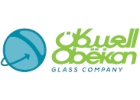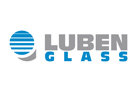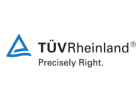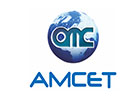Wheaton, a manufacturer of glass packaging for the perfumery and cosmetics segment, will use biomethane as an energy source, replacing part of the natural gas used, investing in renewable energy sources. With this, the company will be the first glass industry to use this renewable fuel in South America.
According to the 2020 National Energy Balance, prepared by the Energy Research Company (EPE), linked to the Ministry of Mines and Energy (MME), renewable sources account for only 45% of the national energy matrix. Among non-renewable sources, oil stands out, accounting for 34% of the matrix, and natural gas (12%). This, mostly consumed by industry (43%) and electricity generation (38%).
Renato Massara Júnior, Commercial and Marketing Director at Wheaton, explains that the adoption of the new energy source is in harmony with the work carried out by the company. “Sustainability, innovation and technology are among the pillars of the company and also of our main customers. And this was a project that we were passionate about. That's why we decided to make Wheaton a pioneer in this regard, by incorporating biomethane into our production,” he says. The sale of biomethane to Wheaton will be made possible by ZEG, a company specialized in the production of renewable energy.
Daniel Rossi, CEO of ZEG, explains that “the replacement of fossil fuel in Wheaton's glass production will save the emission of approximately 7,000 tons of CO² in one year, which is equivalent to more than 50,000 trees planted in a period of 20 years”. The ZEG executive also highlights that “GasBio”, the name of the renewable product that will be supplied, is produced through the sustainable reuse of urban waste in a sanitary landfill located in Sapopemba, in the East Zone of São Paulo.
Biomethane “is a gaseous biofuel obtained from the processing of biogas”. Biogas is a renewable and sustainable energy source, as it is produced by anaerobic digestion (decomposition by the action of bacteria) of organic materials such as agricultural waste, animal manure, domestic sewage and urban solid waste. The quality of biofuel is inspected by the National Agency of Oil, Natural Gas and Biofuels (ANP) since 2017. Since then, the use of energy sources has been encouraged. Among the sectors that use biomethane are vehicular, residential, commercial and industrial.
Renato Massara points out that biogas will be used to generate part of the energy in the industry's ovens, making the company a pioneer in this sector. The use of this fuel is a novelty in glass factories, as its use is more common in agriculture.
Wheaton currently operates four continuous furnaces with a production capacity of one billion vials per year, or 370 tonnes of glass per day. In all, there are 23 production lines, including I.S. machines, in the blow-blow and press-blow processes, and rotary presses, in the pressed process. “Although the glass packaging is 100% recyclable and infinitely reused, natural gas is still consumed for its production. Therefore, the arrival of biogas to replace part of natural gas makes glass an even more sustainable product. We believe that biogas will soon also become more economically advantageous, contributing to increase the competitiveness of Brazilian glass in the world market”, emphasizes the director of the glass factory.
The partnership between Wheaton and ZEG guarantees the supply of up to 10,500 cubic meters per day of the renewable product, at a cost similar to that of natural gas distributed in São Paulo. “The switch to ZEG's renewable fuel can also add brand value to the glass industry, which has clients in its portfolio who are known to be committed to sustainability,” adds Rossi.


























